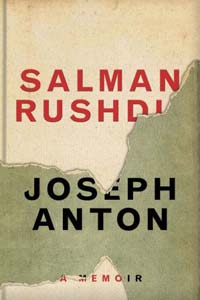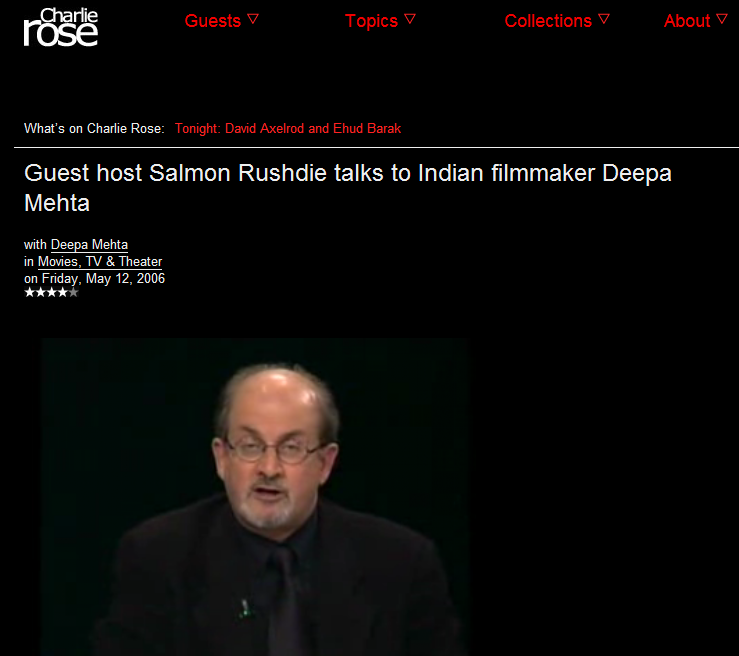Living to tell the tale
 Joseph Anton: A Memoir
Joseph Anton: A Memoir
by Salman Rushdie
Random House, September 2012
656 pages / $18 Buy from Amazon
On the cover of this utterly compelling book, two names belonging to five different individuals introduce the reader to a life abruptly interrupted by politics. First is that of the British author, Salman Rushdie, who deserves praise for the beautiful prose that follows. His surname was adapted by his father from Ibn Rushd, the twelfth century Muslim philosopher whose vein of Islamic scholarship had left its mark on the Rushdie family. Below Rushdie, “Joseph Anton”, a name unknown to history, is inscribed in large letters. This is an invented name which, when taken as a whole, is fictitious, but when separated into two parts, becomes a composite of the first names of Joseph Conrad and Anton Chekov, two of Rushdie’s favorite authors.
Although Joseph Anton is a name invented by the author, the relationship between them is quite different from, say, Oliver Twist and Dickens. The invention here had not been the result of an artistic choice. It was necessitated when Rushdie wrote a novel, in 1989, about the origins of Islam, earning the hatred of Ayatollah Ruhollah Khomeini, the Supreme Leader of Iran.
Khomeini accused Rushdie of blasphemy and issued a fatwa to all Muslims, informing them that the writer of The Satanic Verses as well as “all those involved in its publication who were aware of its content” were sentenced to death. The death of the author, however, had been a wish that was not granted. Rushdie survived and is here to tell the tale. (Others, though, were not as lucky: the Japanese translator of the book was murdered in 1991, the Italian translator was stabbed and his Norwegian publisher attacked at his house.)
Rushdie’s account begins when a BBC reporter calls him to ask how it feels “to know that you have just been sentenced to death by Ayatollah Khomeini?” It doesn’t feel good, he replies before rushing downstairs to lock the front door of his London apartment.
As the reader walks in his shoes in the course of more than 650 densely-written pages, it becomes apparent that Rushdie’s mental state was much more complicated than his initial reaction might suggest. Fatwa becomes for him an elixir, helping Rushdie to identify his friends and his foes. The event also kickstarts a public discussion on blasphemy, religious intolerance and freedom of expression, leading to numerous political stances some of which were taken at the expense of personal safety.
November 23rd, 2012 / 12:00 pm
Multicultural Spellcheck

Folks at Charlie Rose are calling Salman “Salmon”; looks like “Deepa Mehta” and “Ehud Barak” completely fried their spell-checker. Even this WordPress platform can’t handle this post; ha ha, WordPress thinks they are a misspelling. READ MORE >
